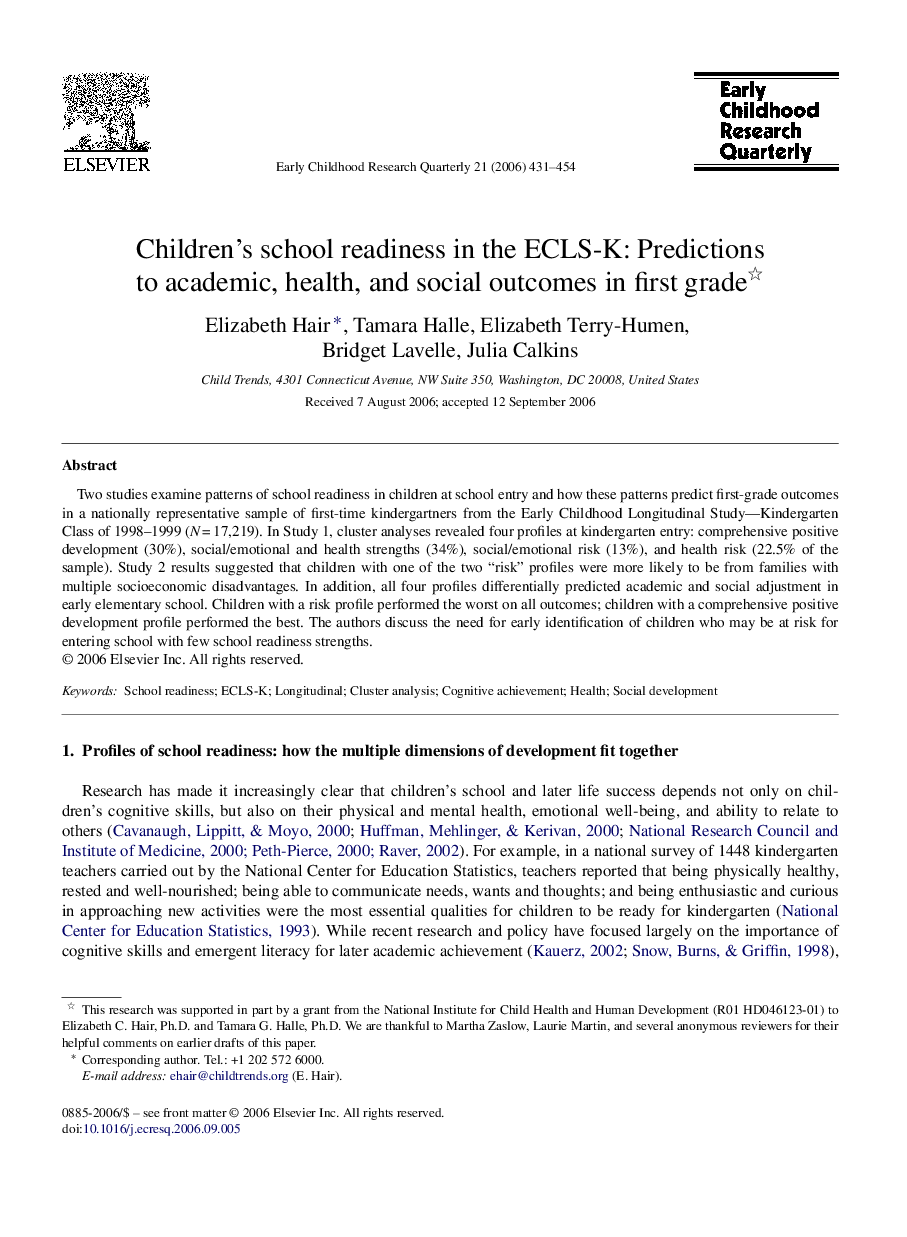| Article ID | Journal | Published Year | Pages | File Type |
|---|---|---|---|---|
| 354142 | Early Childhood Research Quarterly | 2006 | 24 Pages |
Two studies examine patterns of school readiness in children at school entry and how these patterns predict first-grade outcomes in a nationally representative sample of first-time kindergartners from the Early Childhood Longitudinal Study—Kindergarten Class of 1998–1999 (N = 17,219). In Study 1, cluster analyses revealed four profiles at kindergarten entry: comprehensive positive development (30%), social/emotional and health strengths (34%), social/emotional risk (13%), and health risk (22.5% of the sample). Study 2 results suggested that children with one of the two “risk” profiles were more likely to be from families with multiple socioeconomic disadvantages. In addition, all four profiles differentially predicted academic and social adjustment in early elementary school. Children with a risk profile performed the worst on all outcomes; children with a comprehensive positive development profile performed the best. The authors discuss the need for early identification of children who may be at risk for entering school with few school readiness strengths.
